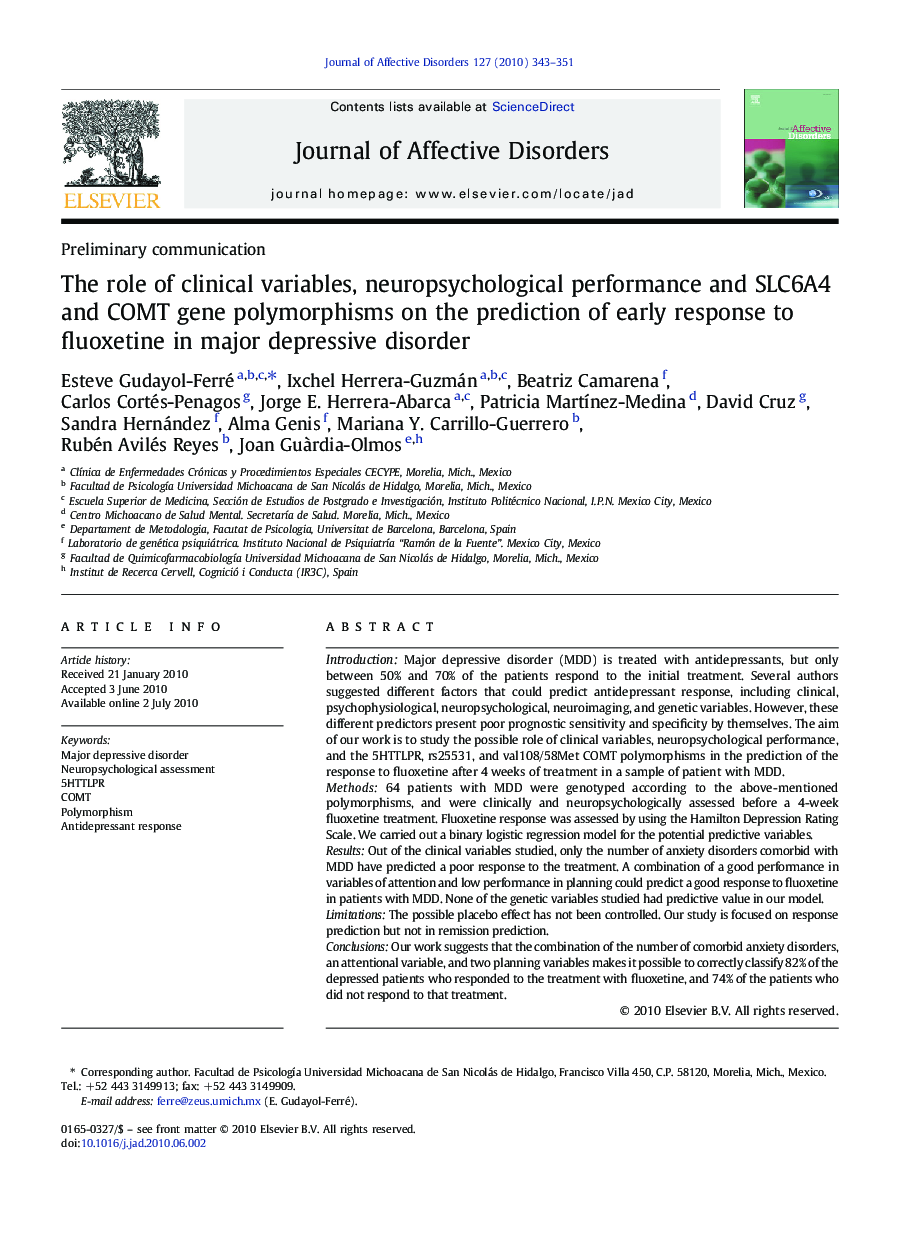| کد مقاله | کد نشریه | سال انتشار | مقاله انگلیسی | نسخه تمام متن |
|---|---|---|---|---|
| 4186662 | 1608193 | 2010 | 9 صفحه PDF | دانلود رایگان |

IntroductionMajor depressive disorder (MDD) is treated with antidepressants, but only between 50% and 70% of the patients respond to the initial treatment. Several authors suggested different factors that could predict antidepressant response, including clinical, psychophysiological, neuropsychological, neuroimaging, and genetic variables. However, these different predictors present poor prognostic sensitivity and specificity by themselves. The aim of our work is to study the possible role of clinical variables, neuropsychological performance, and the 5HTTLPR, rs25531, and val108/58Met COMT polymorphisms in the prediction of the response to fluoxetine after 4 weeks of treatment in a sample of patient with MDD.Methods64 patients with MDD were genotyped according to the above-mentioned polymorphisms, and were clinically and neuropsychologically assessed before a 4-week fluoxetine treatment. Fluoxetine response was assessed by using the Hamilton Depression Rating Scale. We carried out a binary logistic regression model for the potential predictive variables.ResultsOut of the clinical variables studied, only the number of anxiety disorders comorbid with MDD have predicted a poor response to the treatment. A combination of a good performance in variables of attention and low performance in planning could predict a good response to fluoxetine in patients with MDD. None of the genetic variables studied had predictive value in our model.LimitationsThe possible placebo effect has not been controlled. Our study is focused on response prediction but not in remission prediction.ConclusionsOur work suggests that the combination of the number of comorbid anxiety disorders, an attentional variable, and two planning variables makes it possible to correctly classify 82% of the depressed patients who responded to the treatment with fluoxetine, and 74% of the patients who did not respond to that treatment.
Journal: Journal of Affective Disorders - Volume 127, Issues 1–3, December 2010, Pages 343–351